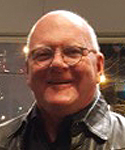Editor’s note: This article will be the first in a series of articles highlighting the advocacy work done by state and local societies around the country.
The South Carolina Rheumatism Society (SCRS) realizes multiple benefits from its association with the ACR, according to Jeffrey G. Lawson, MD, the society’s treasurer. One example of the support offered: A coalition comprising representatives from the SCRS, the ACR, the Arthritis Foundation and other interested
stakeholders advocated for the introduction of H.B. 3438, the biosimilars substitution bill sponsored by State Representative Phyllis Henderson. If the bill passes, South Carolina will join its neighbors, Georgia and North Carolina, in rewriting parts of the state’s pharmaceutical code to allow for the substitution of biosimilars for their reference biologics.
H.B. 3438 Benefits & Concerns
Since March 2015, 28 states have taken advantage of the pathway established by the Biologics Price Competition and Innovation Act of 2009, which created an abbreviated approval pathway for biological products that are demonstrated to be highly similar (biosimilar) to or interchangeable with an FDA-approved biological product. The FDA approved the first biosimilar in the United States in March of 2015. But because current South Carolina legislation does not specifically address biosimilars, the ability to substitute them has not been an option, either for rheumatologists or pharmacists. “Having this law in place will allow that [substitution] process to occur,” says Dr. Lawson.
Another key provision of H.B. 3438 would set up specific communications between pharmacists and physicians. Specifically, the bill would require pharmacists to communicate to the prescribing physician within five days when a substitution of an FDA-approved biosimilar for a name-brand biologic has occurred.
In an opinion column to the Greenville Journal on Feb. 12, 2017, Rep. Henderson wrote that the impetus for her sponsorship of the bill was to ensure that patients with chronic illnesses could have access to drugs that could relieve pain, and that, “for many families, biosimilars could potentially mean financial relief.” However, Dr. Lawson says, the extent of any financial benefit remains to be seen.
SCRS Background
Dr. Lawson has been active with the SCRS since 1979, when he founded the Piedmont Arthritis Clinic, a four-physician private practice serving upstate South Carolina, western North Carolina and northern Georgia. Through its membership in the ACR’s Affiliate Society Council, the SCRS has access to myriad other resources, such as practice management programs; information on state and federal legislation; and yearly presentations from certified professional coders. These services—along others such as with model bylaw assistance, and access resources including ACR templates for drug safety, Medicare, insurance and patient documentation—are provided free of charge to Affiliate Society Council members.
The SCRS Annual Meeting, organized by the Medical University of South Carolina (MUSC), will take place at the Mills House Wyndham Grand Hotel in Charleston, April 21–23. In addition to presentations from MUSC rheumatology fellows, the topics will range from spondyloarthropathy to complex gout, psoriatic arthritis, and sleep and rheumatic disease. For more information, visit the society’s webpage.
Gretchen Henkel is a medical journalist based in California.




